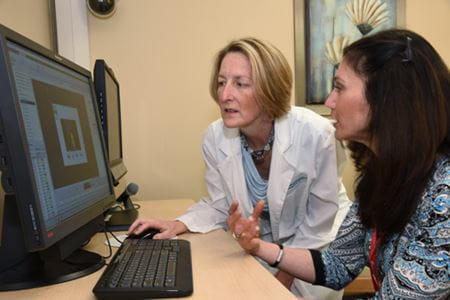INDIANAPOLIS—Researchers at Indiana University School of Medicine are hoping to develop a new model to help those who experience a traumatic brain injury (TBI) recover and better manage challenges that result from their injury.
“There are lots of resources dedicated to helping people survive an injury, but then people are really left to navigate the aftermath on their own,” said Flora Hammond, MD, chair of the IU School of Medicine Department of Physical Medicine and Rehabilitation. “There are a lot of medical issues that can occur later. There are all these ups and downs that can impact how people function. This research is about redefining how we should treat people in the long haul, and not just how one physician should treat them.”
The team, led by Hammond, recently received a $2.5 million federal grant from the United States Department of Health and Human Services and the National Institute on Disability, Independent Living, and Rehabilitation Research to develop this chronic disease model. The project will take about five years, with the first year focused on reviewing research on other models that exist for other chronic diseases.
“There are chronic disease models that have been in use for the past couple of decades for other diseases like diabetes, congestive heart failure, asthma, substance abuse and more,” Hammond said. “These models can teach people how to better self-manage as well as help with community resources. We don’t have a model like that for brain injury.”
Hammond said many people with traumatic brain injury can struggle with long-term effects like difficulty with weight gain, problem-solving skills and finding and keeping jobs. Developing a model that focuses on healthy living in a variety of areas can help with those challenges, as shown in models for other diseases. The team will examine past research on these other models to study what worked well and what didn’t and determine what may work best for those with TBI. Then the team will create a model for those with TBI and conduct feasibility studies to test out the method they develop.
“We’re trying to reshape how people with TBI can get better outcomes by looking at both changes in the health system and in the community,” Hammond said. “Everybody’s brain injury is a little bit different, so we need to figure out what are those tools that we need to put in people’s hands.”
Learn more about TBI research at IU School of Medicine.
###
IU School of Medicine is the largest medical school in the U.S. and is annually ranked among the top medical schools in the nation by U.S. News & World Report. The school offers high-quality medical education, access to leading medical research and rich campus life in nine Indiana cities, including rural and urban locations consistently recognized for livability.



